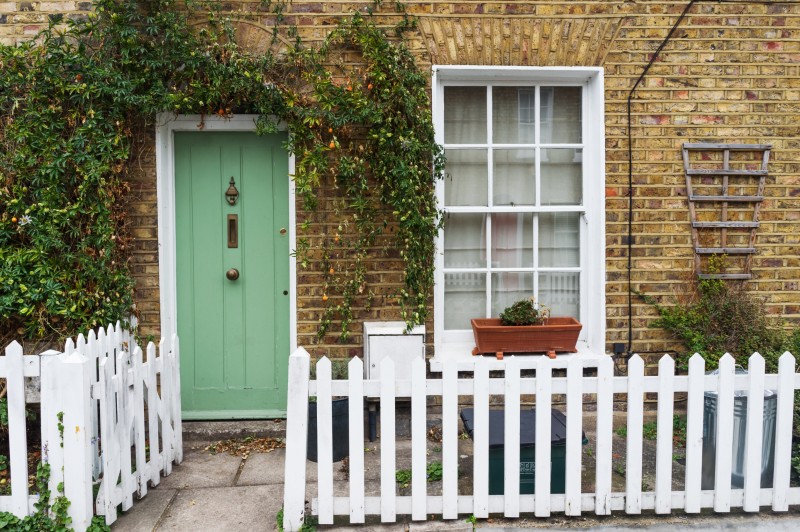
As a landlord, ensuring the safety and security of your rental property in Northampton or Rugby is paramount. Changing the locks on a rental property can be a crucial step in maintaining this security, especially between tenancies. This guide will walk you through why, when, and how to change the locks on your rental property. We will provide practical tips and highlight legal considerations.
Why Change the Locks?
Security Enhancements: The most obvious reason for changing the locks on a rental property is to enhance the security of the rental property. This ensures that only the current tenant and authorized people have access.
After a Tenant Moves Out: Once a tenant moves out, it's wise to change the locks before letting to prevent unauthorized entry. This is especially important if the previous tenant made copies of the keys.
Lost Keys: If a tenant loses their keys, changing the locks can prevent access by someone who finds the lost keys.
Damaged Locks: Wear and tear or damage can compromise a lock's integrity. A replacement is necessary to ensure the property's security.
Read about maintenance tips for landlords here
When Changing the Locks on a Rental Property Should be Done
- At Tenancy Turnover: The best time for changing the locks on a rental property is between tenancies. This practice ensures that new tenants start fresh, with no concerns about previous tenants having access.
- After a Break-In: If the property has been broken into, changing the locks is critical to securing the premises. This also gives peace of mind to your tenants and is best practice.
- Upon Tenant Request: If a tenant requests a lock change for security reasons, consider their request seriously to maintain trust and ensure their safety.
Legal Considerations
Before changing the locks on a rental property, it's essential to understand the legalities. Landlord-tenant laws are strict so it's wise to check the AST (Assured Tenancy Agreement).
- Notice Requirements: Landlords will need to provide notice before changing the locks on a rental property, if a tenant is in situ.
- Tenant Rights: Ensure that changing the locks does not violate tenant rights. Tenants are entitled to access their rental at all times.
- Emergency Situations: In emergencies, immediate lock changes might be permitted. In this case it's crucial to follow up with proper notice if required.
How to Change the Locks
Changing the locks on a rental property in Northampton & Rugby can range from a simple DIY project to hiring a professional locksmith. Here's how to approach it:
- DIY Lock Change: If you're handy, changing the locks yourself can be cost-effective. You'll need to purchase the new lock sets that match the door type and follow the manufacturer's installation instructions.
- Hiring a Locksmith: For more complex locks and to ensure the job is done correctly, hire a professional locksmith. They can also provide advice on the best types of locks for your property.
Choosing the Right Locks
- Quality and Durability: Opt for locks that meet industry security standards and are known for their durability. BS3621 is the thief-resistant standard required for all external ground floor locks on residential properties.
- Type of Locks: Consider deadbolts, electronic locks, or smart locks, depending on the level of security and convenience you want to offer your tenants.
- Key Control: Look for lock systems that prevent unauthorized key duplication, adding an extra layer of security.
Best Practices
- Keep Records: Document when locks are changed and keep a secure record of key distribution.
- Regular Maintenance: Regularly check locks for signs of wear or tampering and address any issues promptly.
- Tenant Communication: Communicate clearly with your tenants about lock changes. Provide them with new keys and ensuring they understand any new features or instructions.
You may also be interested to read our guide for first time landlords
Finally
Changing the locks on your rental property in Northampton or Rugby is a straightforward yet critical aspect of maintaining security and tenant safety. By understanding the why, when, and how, along with legal considerations and best practices, you can ensure that your property remains secure and that your tenants feel safe and valued.
Remember, the goal is not just to protect your property! You also want your tenants to trust you. Confidence will allow them to make your rental property a place they're happy to call home.
For no-obligation advice on rental property management in Northampton & Rugby please contact our expert property team at Horts (Rugby) on 01788 550044 or (Northampton) 01604 639933. Alternatively, email rentals@horts.co.uk or lettings@horts.co.uk.
